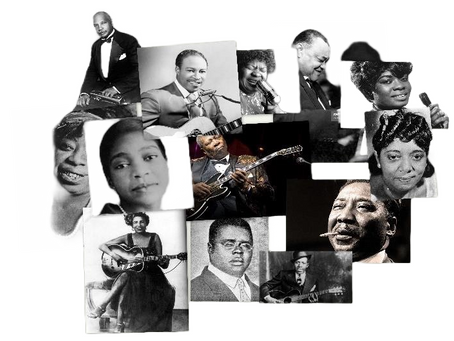top of page
ALL About The Series - Blues in the Schools Program
All Posts


The Urban Conversion - The Great Migration the birth of Rock and Roll
In 1850, some 300 Black people lived in Chicago, during each of the following decades, that number tripled. By 1930, more than half of the African American population in the United States lived in northern cities and towns. Between 1910 and 1920, over 60,000 black people migrated to Chicago. Out of the 109,000 blacks living in Chicago, 90,000 were migrants, and 20,000 of them were born in Mississippi. Many companies in the North required labor, and offered reasonable compens
Fruteland Jackson
Jul 3, 20252 min read


William Christopher Handy
W. C. Handy, also known as the "Father of the Blues," was crucial in bringing structure, form, and legitimacy to the blues music genre. Besides being a cornetist and bandleader, Handy was also a composer and publisher.
Fruteland Jackson
Jul 2, 20252 min read


The Piedmont Region
The Piedmont region has always had a robust Anglo-American folk tradition, particularly among poor whites living in the Appalachian Mountains. This dominant folk tradition significantly influenced the development of blues music.
Fruteland Jackson
Jul 1, 20252 min read


The Mississippi Delta Region
There is a long list of Delta Bluesmen: Bukka White, Muddy Waters, Sonny Boy Williams, B.B. King, Little Milton, John Lee Hooker, Howling Wolf, Elmore James, and many others who would reshape the Delta style to form the distinctive Chicago style blues.
Fruteland Jackson
Jun 30, 20252 min read
bottom of page